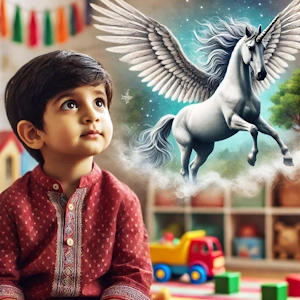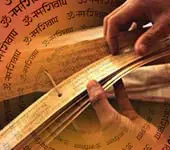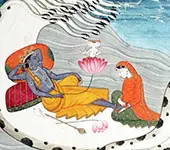Comments
Read more comments
How Pilgrimages Held Bharata Together as a Single Nation
We are examining whether the unity of India had been a reality or just a political statement during our freedom struggle and later.
We looked at the role of the Himalayas as a great wall in the north, which largely protected our culture from invasions. We saw how the fertile land made us self-sufficient and turned us inward in search of truth. This abundance also made us peace-loving, as we didn’t have to fight for food or snatch from one another. We never embarked on sea expeditions to plunder other lands.
Rivers, for us, were divinities, shared unhindered between the erstwhile princely states. Nobody dared to build dams and usurp their waters because rivers were considered goddesses. Who would dare to block their path?
These rivers were not just seen as water sources. Their expanse and reach extended far beyond their physical paths. In Bharata, any household or dharmic ritual includes the chanting of this shloka, no matter the region—be it Kashmir, Rajasthan, Bengal, Andhra Pradesh, or Kerala, from north to south, from east to west:
'Gange cha Yamune...'
This invocation includes:
- Ganga and Yamuna of the north and east
- Godavari of the west
- Saraswati of the northwest and Prayaga
- Narmada of the central region
- Sindhu of Kashmir
- Kaveri of the south
You will hear Kaveri’s name in Kashmir and Sindhu’s name in Tamil Nadu. Ganga’s name is invoked in Rajasthan and Gujarat, regions where Ganga does not flow. This is because, across Bharata, these rivers are considered holy, not merely water sources.
People pray to these rivers for blessings, for the removal of troubles, and for internal purification. Since time immemorial, we have believed in this. Ganga belonged as much to a person in the far south as to someone living on her banks.
A dip in the Ganga at least once in a lifetime was the aspiration of every individual. Ganga was, and is, everyone’s mother. Not just Ganga, the concept of teerthas—holy pilgrimage sites—is unique to Bharata Varsha. This concept itself has held us together as a single unit.
There are thousands of teerthas whose greatness is propagated through scriptures. Stories and legends, passed down generations, inspire people to visit these places and take a holy dip. For someone traveling from Karnataka to Kashi, Uttar Pradesh becomes a holy land, not an alien or enemy land. They may even feel envy for those living there permanently and pray to be born there in their next life.
When such a person meets someone from Kashi or Prayagraj, they see them as a bandhu—a friend, someone familiar. This connection arises because our sages envisioned these pilgrimages along holy and spiritual lines—not for work, earning, or enjoyment.
The thoughts during these pilgrimages were pure. Every destination was holy. Every pilgrim sought purity and holiness.
Today, we travel for enjoyment or opportunities—to Switzerland or Bangkok for fun, to Singapore, Hong Kong, or the Middle East for better jobs or earnings. Those travels were different. They were undertaken solely to earn punya, not material gains, to purify and uplift oneself.
People traveled to Malwa for a dip in the holy Mahi River, viewing the entire land as holy. Others undertook the Narmada Parikrama, finding holiness in every step along the way. Pilgrims visited Arunachala in Tamil Nadu to bathe in Khadga Teertha, Rameswaram for Dhanushkoti, Gaya for Phalgu Nadi, and Ladakh for Sindhu Nadi.
Thousands of such teerthas—Sagar in Bengal, Pushkar in Rajasthan, and many more—transformed the entire subcontinent into a holy land.
A South Indian would not harbor adverse feelings toward a Kashi resident because they revere Ganga and bathe in her sacred waters. Similarly, for a North Indian, a South Indian is blessed for having access to Rameswaram, Arunachaleswara, and Tirupati.
The concept of teerthas has fostered unity and cultivated brotherhood across the entire subcontinent.
Knowledge Bank
Sons of Aruna
Aruna is the brother of Garuda. He married Shyeni. Shyeni means female falcon. They had two sons - Sampati and Jatayu. Their story is part of Ramayana.
Was Thiruvalluvar married?
Yes. His wife was Vasugi.
Recommended for you
Wild Imagination Is Not Good for a Child

Do you know why you get distracted during sadhana?

Narayana Kavacham

atha shreenaaraayanakavacham. raajovaacha. yayaa guptah' sahasraakshah' savaahaan ripusainikaan.....
Click here to know more..